Introduction
Deep learning is transforming everything from self-driving cars to cancer detection.
But with so many frameworks, how do you choose?
This guide cuts through the noise to highlight the top 10 deep learning tools beyond just TensorFlow and PyTorch.
Chainer, a deep learning framework, offers flexibility through dynamic computation graphs. However, alternatives like PyTorch and TensorFlow provide similar dynamic graph capabilities while boasting larger user bases and extensive community support.
From Keras to MXNet, Sonnet to GluonCV, we break down the key strengths of each platform. Whether you need flexibility, scalability, or ease of use, these chainer alternatives have you covered.
Continue reading to know the top 10 deep learning frameworks alternatives to Chainer.
Top 10 Deep Learning Frameworks Alternatives to Chainer
The top 10 deep learning frameworks alternatives to chainer are the following:
TensorFlow
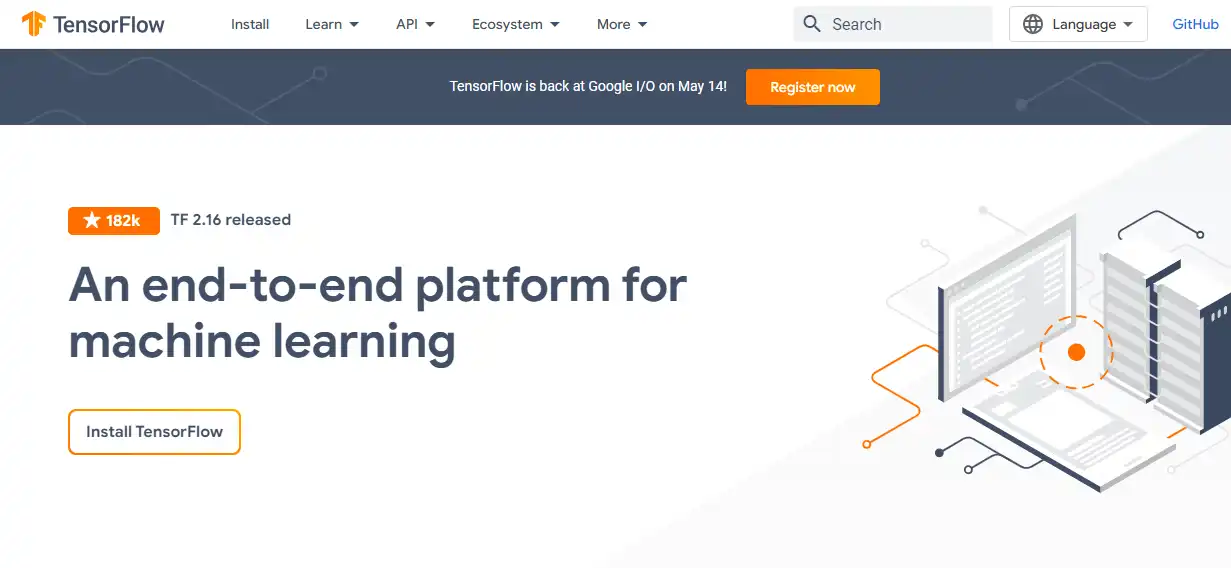
TensorFlow is one of the most widely used deep learning frameworks that has gained immense popularity for its versatility and robustness.
Developed by Google, TensorFlow offers a comprehensive ecosystem of tools and libraries for building and deploying machine learning models on various platforms. It provides high-level APIs for quick and easy model development and low-level capabilities to fine-tune and customize models to specific requirements.
TensorFlow's key strength lies in its scalability and support for distributed computing. It allows users to train models on single devices or scale up to large clusters of GPUs or TPUs, enabling efficient processing of large-scale datasets.
Additionally, TensorFlow is the best chainer alternative that provides extensive visualization capabilities, making it easy to inspect and understand the behavior of neural networks during training.
Keras
Keras is a high-level deep-learning framework with a user-friendly interface. It is an excellent chainer alternative for beginners or those who prefer a simplified approach to building neural networks.
Originally developed as a wrapper around other deep learning libraries, Keras has evolved into a standalone framework offering various functionalities and integrations.
Keras provides a simple and intuitive API for quickly designing and training deep learning models. It supports various backend engines, including TensorFlow and Theano, offering flexibility in choosing the underlying computation engine.
Keras also provides pre-trained models and built-in support for transfer learning. As it also allows users to leverage the power of pre-existing models for their applications with minimal effort.
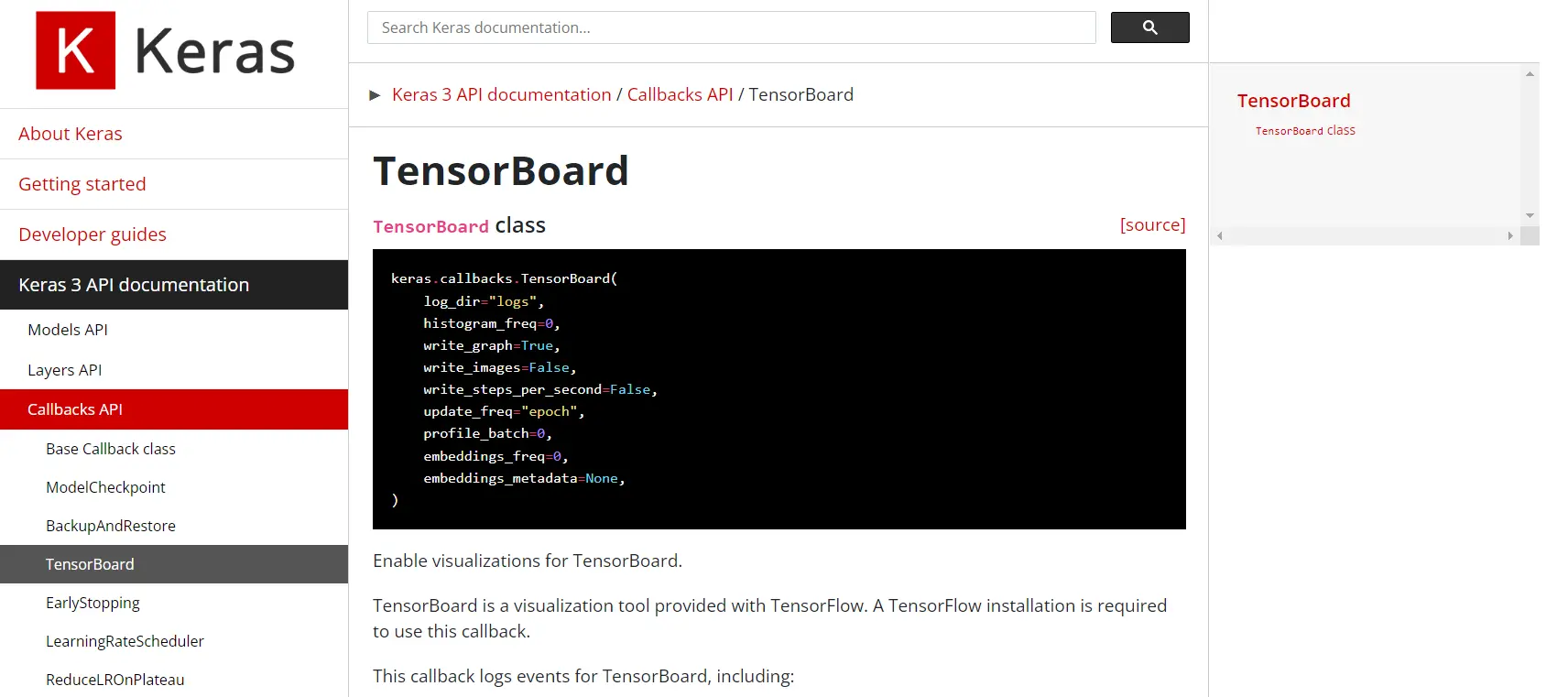
PyTorch
PyTorch, developed by Facebook's AI research team, has gained significant traction in the deep learning community for its dynamic computational graph and intuitive design.
Unlike TensorFlow, PyTorch is also a chainer alternative that offers a more imperative programming style, making it easier for researchers and developers to experiment and prototype new ideas quickly.
One of the key advantages of PyTorch is its seamless integration with the Python ecosystem. With its pythonic syntax and extensive support for libraries such as NumPy, SciPy, and Pandas, PyTorch provides a familiar and intuitive experience for Python developers.
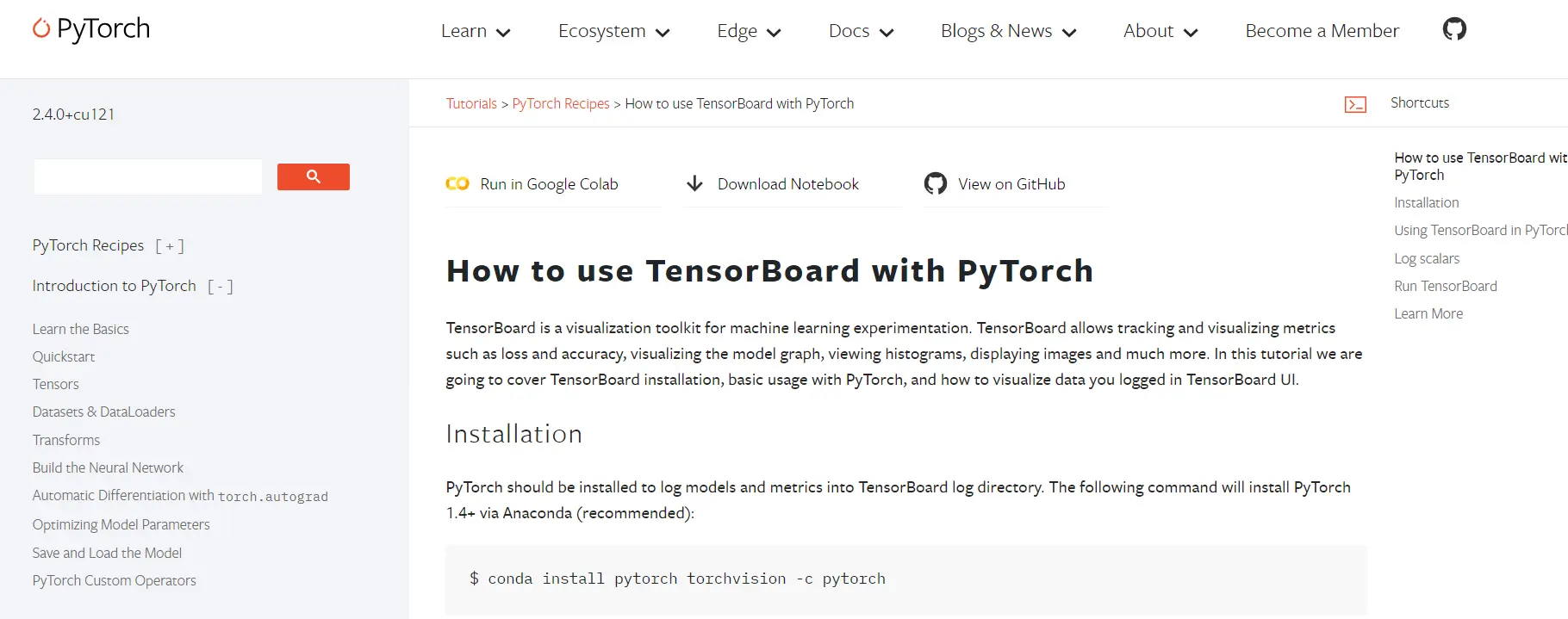
It also offers excellent support for debugging and profiling, enabling users to identify and resolve issues during model development quickly.
Suggested Reading:
Best Ways to Use PyTorch to Improve Your Deep Learning Models
MXNet
MXNet, a chainer alternative, is a highly scalable and efficient deep learning framework that offers flexibility and performance. Developed by Amazon, MXNet supports imperative and symbolic programming models, allowing users to choose the approach that suits their preferences and project requirements.
With its dynamic computational graph, MXNet enables efficient memory allocation and optimization, making it well-suited for large-scale models and datasets. It also supports distributed training, allowing users to leverage multiple GPUs or machines to train deep learning models.
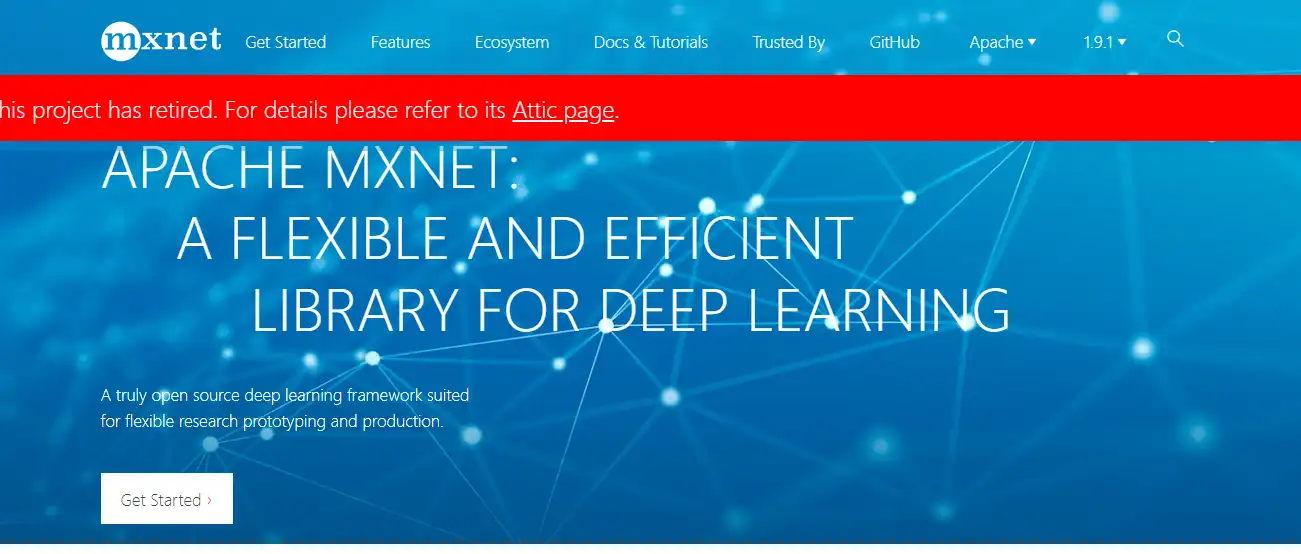
CNTK (Microsoft Cognitive Toolkit)
CNTK, also known as the Microsoft Cognitive Toolkit, is a deep learning framework developed by Microsoft. It is designed to be efficient, scalable, and flexible, making it suitable for various applications.
CNTK a chainer alternative that offers a Python API, allowing users to easily build and train deep neural networks using familiar coding patterns.
One of the key advantages of CNTK is its support for distributed training across multiple GPUs and machines. It also provides high-performance computations using GPUs, enabling faster training and inference.
CNTK's architecture is optimized for efficiency and scalability, making it an excellent choice for large-scale deep learning projects.
If you are the one who likes the no coding chatbot building process, then meet BotPenguin, the home of chatbot solutions. With all the heavy work of chatbot development already done for you, simply use its drag-and-drop feature to build an AI-powered chatbot for platforms like:
JAX
JAX is a deep learning framework that combines the best of both worlds - it offers the flexibility of imperative programming like PyTorch and the performance of a static computational graph like TensorFlow.
Developed by Google, JAX is built on the foundations of NumPy, making it easy to use for developers familiar with the Python ecosystem.
One of the standout features of JAX is its ability to automatically differentiate and compile NumPy code. It allows users to transition seamlessly from traditional scientific computing to deep learning. JAX also supports GPU acceleration and distributed computing, making it suitable for training and deploying large-scale models.
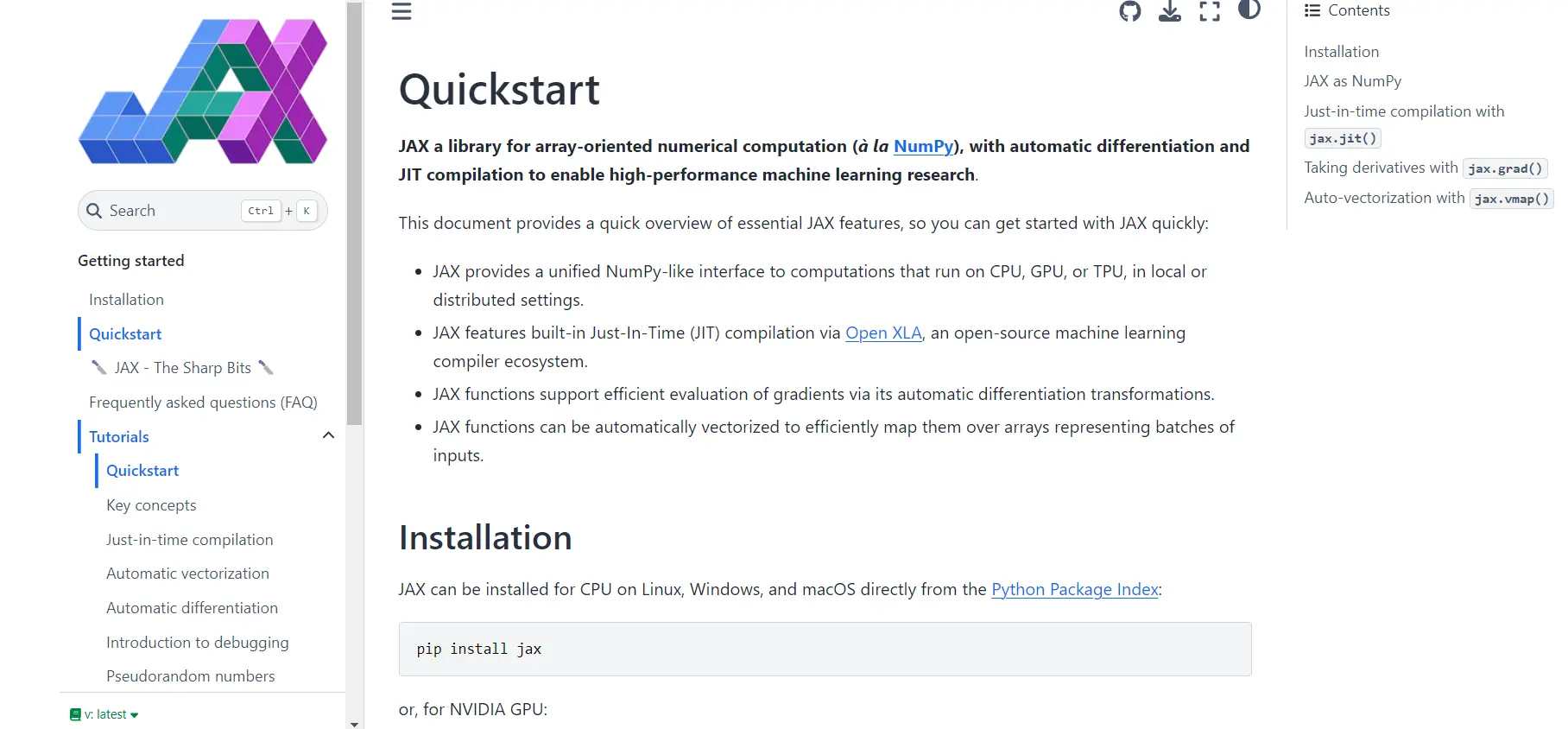
Sonnet
Sonnet is a deep learning framework developed by DeepMind, known for its cutting-edge research in artificial intelligence.
Sonnet is a chainer alternative that provides a flexible and modular approach to building deep neural networks. It offers a high-level API and a set of reusable modules that simplify the creation and training of complex models.
With Sonnet, developers can easily design and experiment with different architectures, thanks to its modular design and intuitive API. It also integrates well with TensorFlow, providing seamless interoperability with the wider TensorFlow ecosystem.
Sonnet's emphasis on modularity and code reusability makes it an excellent choice for researchers and developers looking for flexibility and extensibility.
DeepMind Lab
DeepMind Lab is not just a deep learning framework, but a great chainer alternative and comprehensive platform for designing and training complex agents in virtual 3D environments.
Developed by DeepMind, DeepMind Lab offers a suite of challenging environments and tools for testing and evaluating deep reinforcement learning algorithms.
DeepMind Lab provides a rich, customizable environment for training agents to perform complex tasks. It includes a physics simulator, a variety of navigation and puzzle-solving tasks, and tools for visualizing and analyzing agent behavior.
DeepMind Lab's focus on reinforcement learning and complex environments makes it an ideal choice for researchers and developers working on advanced AI applications.
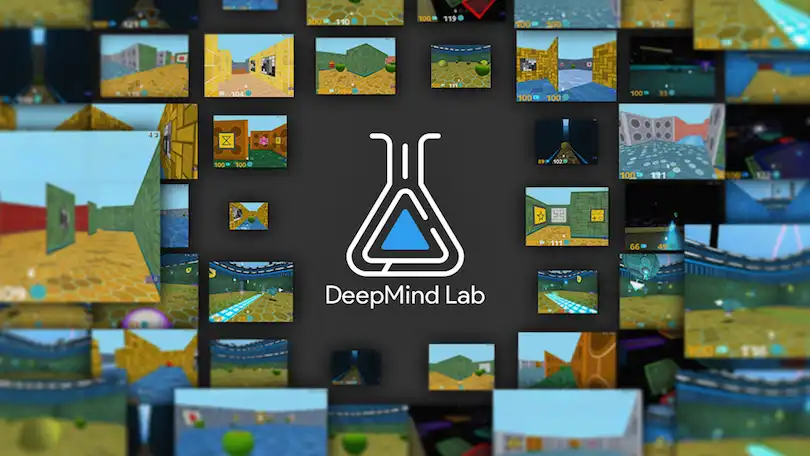
Ludwig
Ludwig is a deep learning framework developed by Uber AI Labs. It aims to simplify the process of building and deploying deep learning models by providing a high-level, declarative approach.
Suggested Reading:
Comparing DL4J with Other Deep Learning Frameworks
Ludwig allows users to train and test models without writing any code, making it accessible to both machine learning experts and non-experts. With Ludwig, a chainer alternative, users can define their models using simple YAML configuration files, specifying the input features and desired output.

Ludwig automatically handles the creation of the underlying neural network architecture and the training process. This makes it easy for users to experiment with different models and iterate quickly.
Ludwig's focus on simplicity and accessibility makes it an ideal choice for those applying deep learning in various domains.
Suggested Reading:
15 Benefits for using Tenserflow in Deep Learning and ML
GluonCV
GluonCV is a deep learning toolkit built on top of Gluon, a flexible and intuitive deep learning framework developed by Amazon and Apache MXNet.
GluonCV offers a wide range of pre-trained models and state-of-the-art computer vision algorithms. Thus making it a powerful chainer alternative tool for image and video processing tasks.
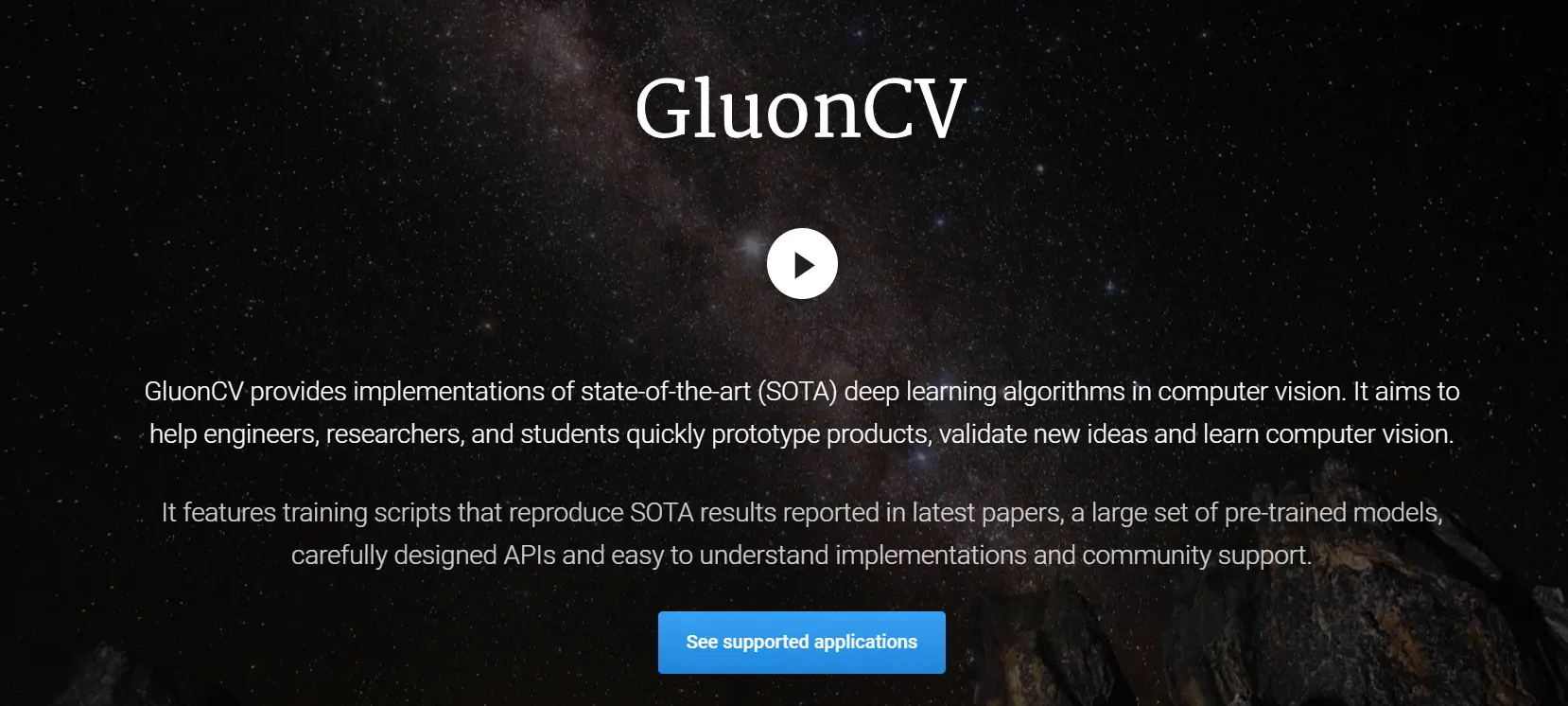
With GluonCV, developers can benefit from simplified model building and training thanks to its high-level interface. It provides easy-to-use APIs for common computer vision tasks, such as object detection, image segmentation, and image classification.
GluonCV's extensive pre-trained model zoo allows users to leverage the power of transfer learning and quickly build high-performance computer vision models.
Conclusion
The deep learning landscape continues to evolve rapidly, with new frameworks emerging to push the boundaries of AI.
While TensorFlow and PyTorch dominate, challengers bring welcome competition and innovation. Choose the right tool for your needs and take your models to the next level.
Using pre-trained architectures and transfer learning to accelerate development. Scale up on flexible cloud infrastructure for ultimate performance. Democratize AI in your organization with easy-to-use, open-source alternatives. The next breakthrough could be yours.
Dig into these cutting-edge frameworks and unleash deep learning's true potential for your business.
The future starts now.
Frequently Asked Questions (FAQs)
How do PyTorch and TensorFlow compare as alternatives to Chainer?
PyTorch emphasizes flexibility and a dynamic computation graph, favored for research purposes. Meanwhile TensorFlow provides scalability, production readiness, and a robust ecosystem suitable for both research and production.
Which frameworks offer excellent support for reinforcement learning models, akin to Chainer's capabilities?
Frameworks like PyTorch and TensorFlow support reinforcement learning models. It offers tools and libraries for building and training complex reinforcement learning algorithms.
Are there deep learning frameworks specifically designed for efficient deployment in production environments, comparable to Chainer?
TensorFlow Serving and TensorFlow Lite are designed for efficient deployment, akin to Chainer's deployment capabilities, offering streamlined processes for serving models in production and on edge devices.
How do these chainer alternative frameworks address Chainer's strengths in terms of research-oriented features?
Frameworks like PyTorch, MXNet, and DyNet emphasize flexibility, dynamic computation graphs, and ease of experimentation, aligning with Chainer's strengths for research-oriented tasks.
Which deep learning frameworks provide comprehensive documentation and community support similar to Chainer?
Frameworks like PyTorch, TensorFlow, and MXNet offer extensive documentation, vibrant communities, tutorials, and resources, facilitating learning and problem-solving for users like Chainer's community support.
Can these alternative frameworks handle distributed computing and scalability, comparable to Chainer's capabilities?
Frameworks like TensorFlow and PyTorch provide robust support for distributed computing, enabling scalability across multiple devices and clusters akin to Chainer's distributed training capabilities.

